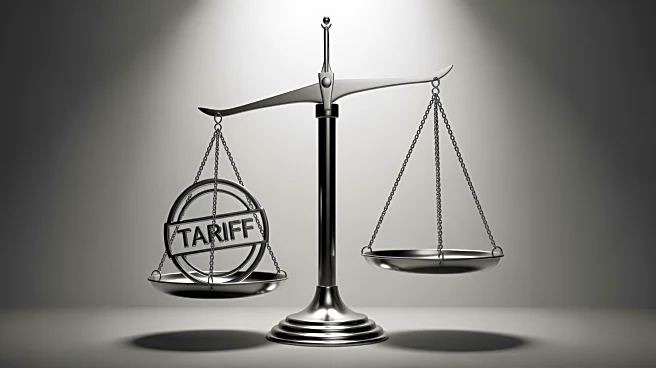What's Happening?
Federal Reserve Governor Stephen Miran has criticized fellow policymakers for focusing on the impact of tariffs, suggesting it makes the central bank appear political. Speaking at an Institute of International
Finance conference, Miran argued that discussing tariffs without addressing other economic policies singles out the Trump administration's actions, potentially undermining the Fed's independence. He emphasized the need for a comprehensive approach to economic policy discussions to avoid perceptions of political bias.
Why It's Important?
Miran's comments highlight concerns about the Federal Reserve's role in maintaining monetary policy independence amid political pressures. The focus on tariffs, a key aspect of President Trump's economic strategy, raises questions about the central bank's impartiality. This critique underscores the challenges faced by the Fed in navigating political dynamics while ensuring effective economic policy. The perception of political bias could impact the Fed's credibility and its ability to manage inflation and economic growth effectively.
Beyond the Headlines
The debate over the Fed's focus on tariffs reflects broader tensions between economic policy and political influence. As the central bank addresses various economic challenges, including inflation and growth, maintaining independence is crucial for effective policy implementation. The discussion also highlights the importance of transparent communication and balanced assessments of economic policies to uphold the Fed's integrity and public trust.










